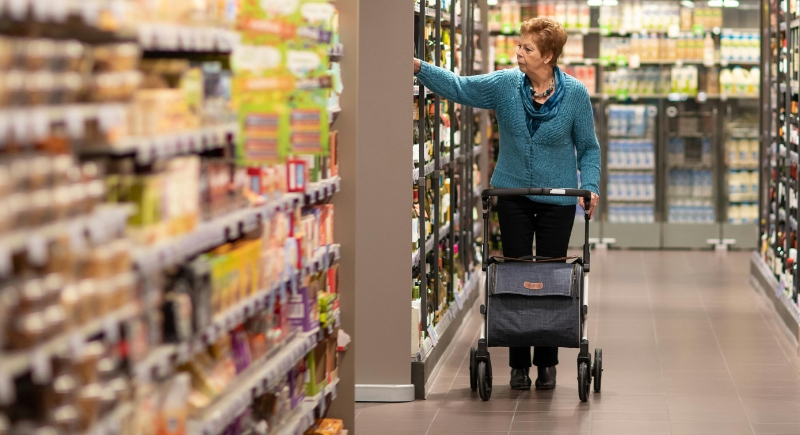9 Things That’ll Be Way Out of Budget for Most Boomers Soon
Retirement isn’t turning out the way many boomers expected. After decades in the workforce, they’re watching the cost of living climb faster than their savings can keep up. More and more of what used to feel secure is now on the chopping block.
Long-Term Care Will Eat Through Retirement Funds

Credit: Rido
Nursing homes and assisted living facilities are already expensive, but by 2035, Genworth projects annual costs could exceed $130,000. Most baby boomers don’t have long-term care insurance, and Medicare doesn’t foot the full bill. That leaves savings to pick up the slack, and most won’t be able to keep up for long.
Premium Travel Dreams Are Getting Grounded

Credit: Getty Images
First-class flights, guided tours, and cruises were once retirement goals. Now, Airfare has been up over 25% since 2019, according to the U.S. Bureau of Labor Statistics. Even hotel rates are climbing steadily. Travel reward points aren’t stretching as far either, which means those golden-year globe-trotting dreams are harder to cash in on.
Buying New Cars Feels Outrageous

Credit: Getty Images
According to the Kelley Blue Book, a new vehicle now averages about $47,500. People who used to replace their cars every few years might shift to used models or delay purchases entirely. Meanwhile, electric vehicles, often touted as the future, are mostly still priced out of reach.
Car Insurance Costs Are Climbing Fast

Credit: Canva
Moreover, older drivers often face higher premiums due to perceived risk, and this trend is worsening. Bankrate reports that car insurance rose 26% in just one year. Even with a clean driving record, baby boomers may find that owning a vehicle consumes a larger portion of their monthly cash flow.
Groceries Aren’t Looking Cheap Anymore

Credit: pexels
Food prices are still rising, and the increases aren’t limited to specialty items. Staples like eggs, milk, and bread now cost more than they did just a year ago. For boomers on fixed incomes, small shifts in grocery prices add up fast. Many are adjusting by choosing store brands more often or buying fewer fresh items to make their budgets stretch.
Medicare Isn’t Covering Enough Anymore

Credit: Getty Images
Medicare still covers a lot, but not as much as it used to. Prescription costs keep rising, and many Advantage plans now come with tighter restrictions or unexpected out-of-pocket charges. To keep up, some retirees are adding private plans or paying more for coverage they once assumed was standard. That extra cost is starting to strain budgets that have already pulled in too many directions.
Helping Grandkids With Tuition Is Slipping Away

Credit: Getty Images
College tuition isn’t easing up. According to the College Board, the average annual cost for a four-year public university is over $28,000. Grandparents hoping to chip in may find they can no longer spare the funds, especially as their own medical and living expenses rise.
Home Maintenance Is Getting Too Expensive

Credit: Getty Images
Owning a home isn’t what it used to be. Roof replacements, HVAC upgrades, or even plumbing work now cost thousands of dollars. Labor shortages and material costs haven’t helped. Boomers living in decades-old homes may soon have to postpone or skip essential repairs due to shrinking budgets.
Downsizing Isn’t Always Cheaper

Credit: Monkey Business Images
It sounds smart on paper: sell the big house, move to something smaller. But with housing prices staying high, especially in popular retirement areas, a smaller home doesn’t always equal smaller payments. In fact, moving costs and closing fees can wipe out any financial benefit of downsizing.
Dining Out Is Becoming A Special Occasion Again

Credit: Getty Images
Restaurant prices have crept up steadily, and it’s changed how often many boomers go out. A casual dinner for two now costs more than it used to feel worth. For those on tighter budgets, meals out are becoming less about convenience and more about special occasions. What was once a weekly habit is now an occasional treat.
Golf And Hobbies Are Getting Sidelined

Credit: pixabay
A round of golf that once ran $35 can now top $65, and club memberships aren’t far behind. Even low-key pursuits like gardening or knitting come with rising supply costs. Some boomers are cutting back, not out of a lack of interest, but because small pleasures now require more financial planning than they used to.
High-Tax States Are Getting Too Pricey

Credit: Getty Images
Places like California, New York, and New Jersey might be beautiful, but they’re not affordable for retirees. High property taxes, income taxes, and general living expenses are pushing boomers to relocate to states like Florida or Tennessee. Many find that the math doesn’t work anymore in their longtime hometowns.
Technology Upgrades Feel Out Of Reach

Credit: baseimage
Tech is no longer optional, but keeping up with it is not cheap. The average smartphone now costs over $1,000. Add in accessories and service plans, and even digital essentials are starting to feel excessive. Many boomers stretch outdated tech far past its usable life.
Gifting And Celebrating Are Slimming Down

Credit: Getty Images
Birthdays, anniversaries, and holidays used to be a time for generosity and goodwill. Lately, boomers are scaling back. Instead of lavish gifts or hosting large family gatherings, many are settling for smaller gestures. Inflation has taken a toll on even the most joyful moments.
Luxury Purchases Are Fading Fast

Credit: Canva
Designer bags and fine jewelry, even upscale furniture, are sliding off shopping lists. For retirees living on pensions or Social Security, spending thousands on something non-essential just doesn’t make sense anymore. As a result, these indulgences are being replaced with more practical and budget-friendly choices.